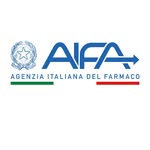.png) Agenzia Italiana del Farmaco
Agenzia Italiana del Farmaco
New measures to minimise risk of meningioma with medicines containing nomegestrol or chlormadinone - New measures to minimise risk of meningioma with medicines containing nomegestrol or chlormadinone
New measures to minimise risk of meningioma with medicines containing nomegestrol or chlormadinone
EMA’s human medicines committee (CHMP) has endorsed the recommendation of the Pharmacovigilance Risk Assessment Committee (PRAC), which concluded that the benefits of medicines containing nomegestrol or chlormadinone outweigh the risks, provided new measures are taken to minimise the risk of meningioma.
A meningioma is a tumour of the membranes covering the brain and spinal cord. It is usually benign and is not considered to be a cancer, but due to their location in and around the brain and spinal cord meningiomas can in rare cases cause serious problems.
The CHMP has recommended that medicines containing high-dose nomegestrol (3.75 – 5 mg) or high-dose chlormadinone (5 – 10 mg) should be used at the lowest effective dose and for the shortest duration possible, and only when other interventions are not appropriate. In addition, low- and high-dose nomegestrol- or chlormadinone-containing medicines must not be used by patients who have, or have had, meningioma.
As well as restricting the use of the high-dose medicines, the CHMP has recommended that patients should be monitored for symptoms of meningioma, which can include change in vision, hearing loss or ringing in the ears, loss of smell, headaches, memory loss, seizures and weakness in arms or legs. If a patient is diagnosed with meningioma, treatment with these medicines must be permanently stopped.
The product information for the high-dose medicines will also be updated to include meningioma as a rare side effect.
The recommendations follow a review by the PRAC of available data, including post-marketing safety data and results from two recent epidemiological studies. ’ These data showed that the risk of meningioma increases with increasing dose and duration of treatment. The CHMP endorsed the PRAC’s assessment of this risk.
The CHMP opinion has been sent to the European Commission, which will issue a legally binding decision valid across the EU.
Published on: 02 September 2022







